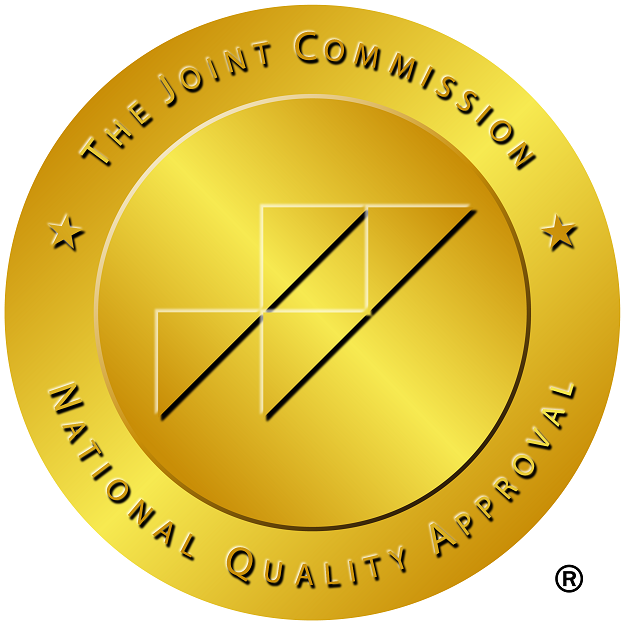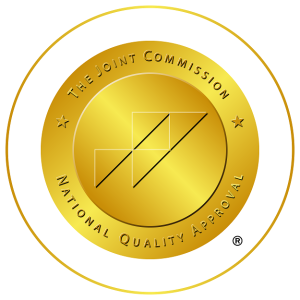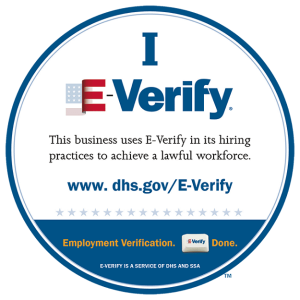Pollen allergies, also known as hay fever or allergic rhinitis, are widespread and affect millions worldwide. With the arrival of spring and summer, many individuals experience symptoms such as sneezing, runny nose, and itchy eyes, often assuming they have a common cold. However, these symptoms can persist for several weeks or months and indicate an allergic reaction to pollen.
Pollen allergies occur when the immune system mistakenly identifies pollen as a harmful substance and releases histamine and other chemicals to fight it off. These chemicals trigger unpleasant symptoms, including sneezing, congestion, and itching. staffing agencies for hospitals While pollen allergies are not typically life-threatening, they can significantly impact an individual’s quality of life, making it challenging to enjoy outdoor activities and reducing productivity and fatigue.
This article will explore the causes, symptoms, prevention strategies, and coping mechanisms for pollen allergies. Whether you’re experiencing pollen allergies for the first time or have been managing the condition for years, this guide will provide the information and tools you need to live a fulfilling life with pollen allergies.
Identifying Pollen Allergies
Pollen allergies, also known as hay fever or allergic rhinitis, are caused by an allergy to pollen from certain plants. Different types of pollen allergies depend on which plant’s pollen triggers the allergic reaction. Some common types of pollen allergies include:
- Tree pollen allergies:
This allergy is triggered by oak, birch, cedar, and pine tree pollen. Tree pollen allergies are most common in the spring.
- Grass pollen allergies:
Grass pollen allergies are triggered by pollen from grasses such as Timothy, Bermuda, and rye. This type of allergy is most common in the summer.
- Weed pollen allergies:
This allergy is triggered by pollen from weeds such as ragweed, sagebrush, and tumbleweed. Weed pollen allergies are most common in the fall.
It’s also possible to have multiple pollen allergies at once, and some people may be allergic to pollen from more than one type of plant. staffing agencies for hospitals The symptoms of pollen allergies can range from mild to severe & may include sneezing, runny nose, itchy eyes, and congestion. Treatment options include avoiding exposure to pollen, taking antihistamines, and using nasal sprays or other medications.
Symptoms of Pollen Allergies
Common symptoms of pollen allergies include sneezing, a runny or stuffy nose, itchy and watery eyes, and a scratchy throat. These symptoms can be mistaken for those of a cold or the flu, but a key difference is that they persist for several weeks or even months. We have listed the symptoms of pollen allergies below.
- Sneezing
- Runny or stuffy nose
- Itchy or watery eyes
- Scratchy or sore throat
- Coughing
- Postnasal drip
- Fatigue
- Headache
- Impaired sense of smell or taste
- Dark circles under the eyes
- Puffiness around the eyes
- Eczema or hives
Not everyone with pollen allergies will experience all these symptoms, and the severity and duration of symptoms can vary depending on the individual and the pollen count. If you suspect you have pollen allergies, it’s essential to seek professional medical advice to receive an accurate diagnosis and appropriate treatment.
Causes of Pollen Allergies
Pollen allergies, also known as hay fever or allergic rhinitis, occur when the immune system overreacts to airborne particles, such as pollen, that are harmless to most people. The immune system mistakes the pollen for a harmful invader & releases chemicals, such as histamine, which trigger symptoms like sneezing, runny nose, and itchy eyes. The causes of pollen allergies include:
- Genetic factors:
Those with a family history of allergies are more likely to develop pollen allergies.
- Exposure to pollen:
Pollen is the common cause of seasonal allergies. Pollen is released from plants during their reproductive process and is carried by the wind. When people breathe in pollen, it can trigger an allergic reaction.
- Environmental factors:
Environmental factors such as air pollution, humidity, and temperature can increase the severity of pollen allergies.
Immune system dysfunction:
People with a weakened immune system or autoimmune disorders are more likely to develop allergies.
Cross-reactivity:
Some people with pollen allergies may also be allergic to certain foods, such as fruits, vegetables, or nuts, due to cross-reactivity between the proteins in the pollen and those in the food.
It’s important to note that the causes of pollen allergies can vary from person to person, and a combination of these factors may contribute to an individual’s allergy symptoms.
Pollen Allergy Diagnosis
A pollen allergy is typically diagnosed based on medical history, physical examination, and allergy testing. Here are some of the methods that healthcare professionals may use to diagnose a pollen allergy:
1. Medical history:
The doctor may ask questions about the patient’s symptoms, when they occur, and whether they are seasonal. They may also inquire about any family history of allergies or other related health conditions.
2. Physical examination:
The doctor may examine the patient’s nose, throat, and ears to look for signs of inflammation or irritation, such as swelling or redness.
3. Skin prick test:
This involves placing a small amount of allergen extract on the skin and pricking the skin with a needle. If the patient is allergic to the allergen, a small red bump will appear on the skin within 15-20 minutes.
4. Blood test:
A blood test can calculate the level of specific IgE antibodies in the blood produced by the immune system in response to allergens.
5. Challenge test:
Sometimes, the doctor may perform a challenge test involving exposing the patient to a small amount of the suspected allergen and monitoring their reaction.
Once a pollen allergy is diagnosed, the healthcare professional may recommend various treatment options, such as avoiding pollen, taking antihistamines, using nasal sprays or other medications, or undergoing immunotherapy (allergy shots).
Allergy Treatment for Pollen
The treatment for pollen allergies can vary depending on the severity of the symptoms & the individual’s response to different therapies. Here are some standard treatment options:
1. Avoidance of pollen:
Avoiding exposure to pollen as much as possible is the best way to prevent an allergic reaction. This can be achieved by staying indoors during peak pollen season, keeping windows and doors closed, using air purifiers, and avoiding activities that may expose the individual to pollen, such as gardening or lawn mowing.
2. Medications:
Over-the-counter & prescription medications can be used to treat the symptoms of pollen allergies, such as sneezing, runny nose, and itchy eyes. Healthcare professionals commonly prescribe antihistamines, decongestants, and nasal corticosteroids to relieve allergy symptoms.
3. Immunotherapy:
Immunotherapy, that also known as allergy shots, is a long-term treatment option that can help reduce the severity of allergy symptoms. It involves regular injections of small amounts of allergens, such as pollen, to desensitize the immune system to the allergen.
4. Alternative therapies:
Some individuals may find relief from pollen allergies by using alternative therapies such as acupuncture, herbal supplements, or homeopathy. However, the effectiveness of these therapies needs to be better established and should be discussed with a healthcare professional.
It’s important to note that while these treatments can help manage the symptoms of pollen allergies, they may not provide a permanent cure. It’s always suggested to consult with a healthcare professional to determine the best treatment plan for an individual’s needs.
5. Home Remedies:
Several home remedies can help alleviate symptoms of pollen allergy, including:
- Flushing pollen out of the nose using a neti pot or squeeze bottle.
- Try herbs and extracts that are sometimes effective, such as PA-free butterbur or spirulina.
- Removing and washing any clothing worn outside and drying clothes in a dryer instead of hanging them out.
- Using air conditioning in homes and cars to keep pollen out.
- A portable HEPA filter or dehumidifier purifies indoor air.
- Vacuuming daily with a vacuum cleaner with a HEPA filter to remove pollen and other allergens from carpets and furniture.
Preventing Allergies Caused by Pollen
Preventing pollen allergies can be challenging, but several steps can be taken to minimize exposure to pollen and reduce the risk of allergic reactions. Here are some tips to prevent pollen allergies:
- Monitor pollen counts: Check local pollen forecasts and stay indoors when the pollen count is highest.
- Close windows and doors: Keep windows & doors closed to prevent pollen from entering the home.
- Use air conditioning: Use air conditioning to cool the home instead of opening windows, and replace the air filters regularly.
- Shower after being outside: Take a shower and change clothes after being outside to remove any pollen that may be on the skin or clothes.
- Avoid outdoor activities: Limit outdoor activities during peak pollen season, or wear a face mask to prevent inhaling pollen.
By following these steps, individuals can reduce their exposure to pollen and minimize the risk of allergic reactions.
Conclusion
To cope with pollen allergies, it’s essential to understand the causes, symptoms, types, diagnosis, and treatment options. Signs include sneezing, a runny nose, itchy eyes, and congestion. Treatment options include medication, allergen immunotherapy, and avoidance of pollen exposure. Working with a healthcare provider to develop a personalized treatment plan can help individuals manage their symptoms and maintain a good quality of life. We hope you found this article helpful.
Have you heard of emonics healthcare staffing agencies for hospitals? They are truly a game-changer in the medical industry. These agencies specialize in recruiting and placing healthcare professionals, such as nurses and physicians, in hospitals across the country.














